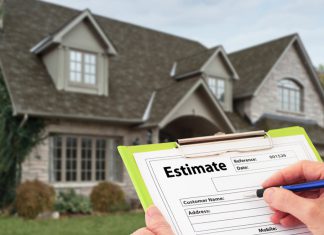Buying your first home comes with a lot of perks at tax time, and while that shouldn’t be the sole reason you choose to purchase a home, it’s beneficial. Purchasing a home isn’t right for everyone, but for those who are ready to settle down in their first property, they should follow these steps on buying a home. There is a lot to know before purchasing a home, including the tax benefits. Here are some deductions that may surprise you.
Your Mortgage Interest is Typically Deductible
When your mortgage is less than $750,000, you can use the interest you pay on your mortgage as a tax deduction. Deductible interest is huge for tax time and is a massive benefit in the argument for owning a home versus renting. This limit was $1,000,000 before 2017, but the Tax Cuts and Jobs Act made adjustments and clarifications. There are additional forms that may be required for you to fill out depending on how you file your taxes, but using online software or an accountant can help you through the process.
Locational Deductions
Depending on the state you live in, you may qualify for benefits based on the value of your home. Your state or local government may offer deductions up to $10,000 or $5,000 if you’re married and separately filing your taxes. Many individuals likely won’t qualify because of higher deduction standards, but it’s worth asking your accountant about it.
Your Property Taxes are Deductible
Under the new TCJA, you can deduct up to $10,000 of your annual property taxes, and they have to be domestic taxes. If you pay your taxes directly to your lender because they’re added to your mortgage payments, you will see that amount reflected on your IRS forms. You can then apply that directly to your taxes. If you pay your taxes directly to your municipality, you will require proof of payment to add them to your deductions.
Points as a Tax Deduction
Buying a home means that you are required to pay “points” to your lender for them to pay your mortgage. The amount is often a certain percentage of your total loan amount and will vary among lenders. If your home and your points secure your loan, and it’s a typical amount for your neighborhood, you can deduct the points as interest. As long as how much money you paid at closing with your down payment is the same amount as your points.
As an example, you paid 2% of your $300,000, which equals two points. This equates to $6,000. You can claim the points as a deduction as long as you put $6,000 or more down for the down payment. You can even deduct the points if the seller was the one to foot the bill for them as well.
Insurance Deductions
PMI, or Private Mortgage Insurance, is an additional fee you need to pay when your down payment is less than 20% of the total cost of your home. This is a way for lenders to protect themselves in case you default on your loan. If you purchased your home after 2007, you might be able to deduct these PMI payments, as long as your combined gross income is $100,000 or less, or $50,000 if you’re single.
Upgrading Your Home can Lead to Deductions
Make sure you save all of your receipts for all your renovations and upgrades, including landscaping costs, your HVAC needs, upgrading your windows, or others. While you can’t deduct these immediately, when you sell your home, you can add up all your upgrades to determine the value you’ve put into the house. Home-sale profit is now tax-free, so your updates can help limit how much the IRS wants to take off your profit.
Energy-efficient Deductions
Making energy-efficient upgrades to your home is both beneficial to your home, the environment, and your wallet. You can claim tax deductions for solar energy for both electric and water heating equipment until 2021. If you installed between January 2017 and December 2019, you might qualify for 30% of the cost. Between January 2020 and December 2020, you may be eligible for 26% of the value, and between January 2021 and December 2021, you may qualify for 22%.
Aging in Place Deductions
Aging in place means that an individual stays in their home for as long as they can before requiring extra assistance. This can be important for the comfort and independence of aging individuals. Aging in place may include adding services or care to help extend the ability to live in the home alone. If part of your life plan includes living in your home during this time, you may be able to deduct those expenses like wheelchair ramps or bathtub accessories, lowering electrical figures or cabinets. Please consult your accountant or tax expert to ensure you’re ready to claim any upgrades you’ve made to your property.
Working From Home Deductions
If you have a side gig or you work remotely full-time, you can deduct your home office space and any home office expenses. Currently, the tax laws allow you to deduct $5 per square foot, up to 300 square feet. There’s a maximum deduction of $1,500, but there are strict guidelines for this process. Discussing this with your accountant or a tax expert is highly recommended.
Taxes can be a stressful time if you’re not aware of all the benefits that owning a home can afford you. Working directly with an accountant or tax expert will help ease your stress, and they can help you maximize your tax return. Along with your realtor, you can move smoothly through the home buying process. There are many questions to ask before buying a home, and tax deductions are something you should know before you start the process.
Author Bio:
Alex Platt is a real estate agent for The Platt Group in South Florida. He brings a wealth of knowledge and expertise about buying and selling real estate.














